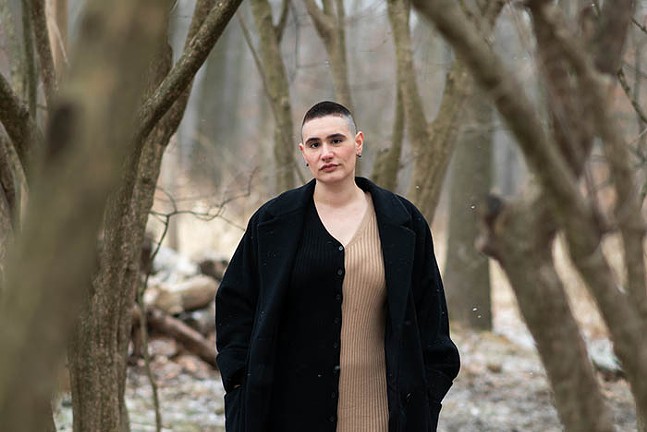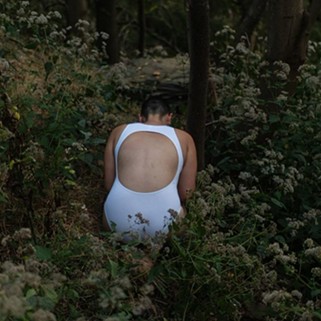For Pittsburgh-based musician Elizabeth Harris, who performs under the name fig, music is a tool for healing and understanding the self. Harris’ new album, Soft Animal, which dropped on Feb. 18, follows that direction, with a dreamy, cascading look into reclaiming the body after trauma.
Harris, who is from Mt. Lebanon, says she grew up in a musically inclined family.
“My uncle was my piano teacher, my pap was a wedding singer who also played guitar, which is why I wanted to get into guitar,” Harris says. “So I started getting into all that, playing piano when I was really little and then guitar when I was, like, 12.”
After living in Pittsburgh for most of her life and attending Duquesne University to study music therapy, she moved to Cleveland to finish her degree, where she stayed for four years before moving back to the Steel City.
For the uninitiated, the phrase “Soft Animal” is a reference to the late Pulitzer Prize-winning poet Mary Oliver’s poem “Wild Geese,” where Oliver writes: “You only have to let the soft animal of your body love what it loves.” Oliver passed away in 2019.
“I don’t want to say this poet was tethering me to reality,’ but in a lot of ways she was, and a lot of her work made me feel better about being alive,” Harris says. “To have to reconcile with her dying was really difficult because this person was helping me feel okay with being alive, but now they're not alive.”
Soft Animal, the album, is close to “Soft Animal,” the poem, in its lyricism and in its mercy for the body. It begins with “Pomegranate,” a sweet, meditative song that employs strings and minimal drums as Harris sings about a prior relationship that she went through that was “very, very traumatic.”
The lyrics “you told me they were sweet and I believed what I heard, so I swallowed them whole just like I swallowed your every word” come at a climax in the song, and speak to the control and deception often common in traumatic relationships.
Harris says this song serves as the perfect entry to the album because it establishes what the project is all about. Throughout the album, Harris’ voice emerges as strong and confident, and, on some tracks, ethereal. She not only is a singer and music therapist, but also teaches voice lessons, which is easy to imagine when you hear her voice.
The title track is as much an ode to the body as it is a champion for being gentle with oneself, especially after experiencing trauma. Harris sings “my body is a soft animal, I feed her, I hold her, I love her, I heal her, I lay her down.”
Harris says that most of the songs for the album were written between 2014-2019, and while some of the songs have been released as demos over the years, Soft Animal is her first full-length project.
“There’s a thread that goes through all the songs of healing and trauma work, and coming into myself and my identity, which can also be traumatizing, and the question of, ‘How do you orient yourself to the world and your relationships after you've experienced trauma?’” says Harris.
In “Body Study I,” Harris muses, “I’m tired of being a testament, I’m tired of trying harder, I’m tired of selling myself short for people who refuse to barter,” which, as a listener, one can imagine is about these relationships and traumatic experiences that haunt the body.
The refrain in that song, “I’ve forgotten my own body,” furthers the conversation Harris is starting about how the body communicates when it is under duress.
From a songwriting standpoint, Harris is sophisticated and knowledgeable about the ways people heal. She also writes in a poetic voice that is sharp and precise. And while many of the songs deal with the topic of trauma, there are also love songs on the album like “Lover, Lover” and “Baby.”
As the album nears its end, we get those sweeter songs, ending on “Baby,” which Harris says was intentional. The saccharine piano ballad ends the album on a tender note, while also meditating on identity and accepting yourself when you are queer.
“Having gone through trauma therapy and many other therapies, [I’m] still coming to this battle with myself of feeling shame for queerness and feeling shame for being myself, even when I'm trying to heal and move on,” Harrisy says, “so I wanted to end it with something that was a little hopeful but not all happy rainbows.”
fig. fignewtunes.com



